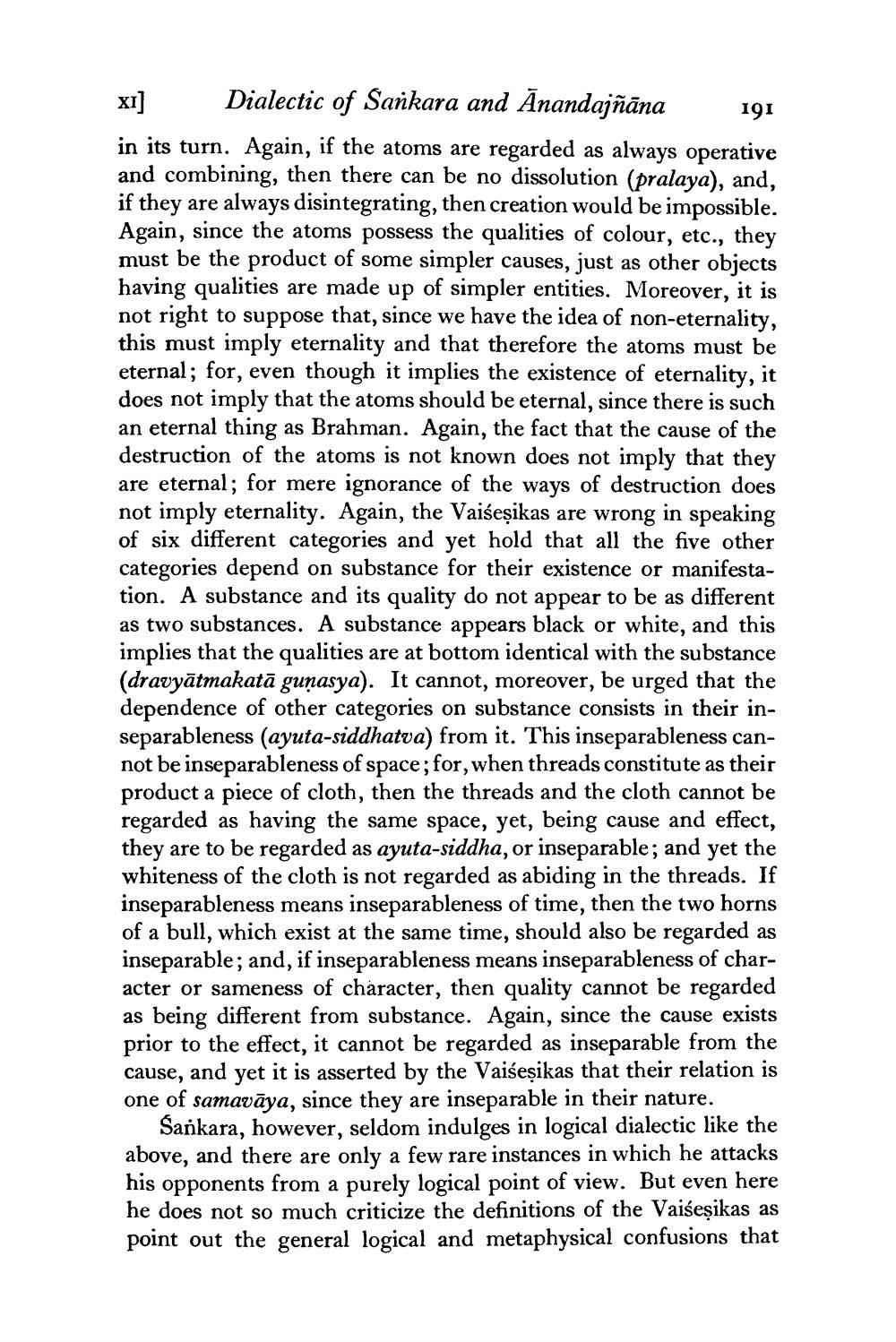________________
XI]
Dialectic of Sankara and Ānandajñāna
191
in its turn. Again, if the atoms are regarded as always operative and combining, then there can be no dissolution (pralaya), and, if they are always disintegrating, then creation would be impossible. Again, since the atoms possess the qualities of colour, etc., they must be the product of some simpler causes, just as other objects having qualities are made up of simpler entities. Moreover, it is not right to suppose that, since we have the idea of non-eternality, this must imply eternality and that therefore the atoms must be eternal; for, even though it implies the existence of eternality, it does not imply that the atoms should be eternal, since there is such an eternal thing as Brahman. Again, the fact that the cause of the destruction of the atoms is not known does not imply that they are eternal; for mere ignorance of the ways of destruction does not imply eternality. Again, the Vaiseṣikas are wrong in speaking of six different categories and yet hold that all the five other categories depend on substance for their existence or manifestation. A substance and its quality do not appear to be as different as two substances. A substance appears black or white, and this implies that the qualities are at bottom identical with the substance (dravyātmakatā guṇasya). It cannot, moreover, be urged that the dependence of other categories on substance consists in their inseparableness (ayuta-siddhatva) from it. This inseparableness cannot be inseparableness of space; for, when threads constitute as their product a piece of cloth, then the threads and the cloth cannot be regarded as having the same space, yet, being cause and effect, they are to be regarded as ayuta-siddha, or inseparable; and yet the whiteness of the cloth is not regarded as abiding in the threads. If inseparableness means inseparableness of time, then the two horns of a bull, which exist at the same time, should also be regarded as inseparable; and, if inseparableness means inseparableness of character or sameness of character, then quality cannot be regarded as being different from substance. Again, since the cause exists prior to the effect, it cannot be regarded as inseparable from the cause, and yet it is asserted by the Vaiseṣikas that their relation is one of samavaya, since they are inseparable in their nature.
Sankara, however, seldom indulges in logical dialectic like the above, and there are only a few rare instances in which he attacks his opponents from a purely logical point of view. But even here he does not so much criticize the definitions of the Vaiseṣikas as point out the general logical and metaphysical confusions that




